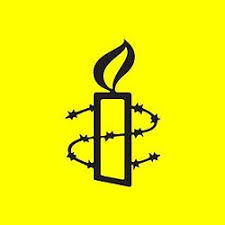Halt Imminent Execution of Youth Sentenced to Death at 16

The Iranian authorities must urgently halt the execution of 18-year-old Amirhossein Pourjafar, scheduled to take place tomorrow, 4 January 2018, and commute his death sentence to imprisonment, Amnesty International said today. Amirhossein Pourjafar was 16 years old when the murder and rape of which he was convicted took place and international law absolutely prohibits the use of the death penalty against individuals who were under 18 at the time of the crime prosecuted.
In line with this obligation, Amnesty International is calling more broadly on the Iranian authorities to immediately end the abhorrent practice of executing people who were below 18 years of age when the crime of which they were convicted was committed, as well as to establish a moratorium on all executions pending full abolition of the death penalty.
The Iranian authorities previously scheduled Amirhossein Pourjafar’s execution for 19 October 2017, but then halted the execution the day before after widespread international pressure. At that time, Amirhossein Pourjafar was 17 years old.
Yesterday, 2 January 2018, his family made their last visit to see Amirhossein Pourjafar in Raja’i Shahr prison in the city of Karaj before the scheduled execution.
In a media interview with the Iranian Student News Agency (ISNA) from inside prison on 30 December 2017, Amirhossein Pourjafar expressed regret for his actions and said that his cognitive functions were severely impaired at the time of the crime due to drinking alcohol. In this interview, he said that during his trial, he was repeatedly told by the authorities that he was fully developed and mature, and that he would be executed.
Amirhossein Pourjafar was arrested and detained in April 2016. He was sentenced to death in September 2016, after being convicted of the rape and murder of Setayesh Ghoreyshi, a six-year-old girl from Iran’s marginalized Afghan community. Branch 7 of Criminal Court No. 1 in Tehran imposed on Amirhossein Pourjafar two death sentences, one for murder in accordance with the Islamic principle of “retribution-in-kind” (qesas) and another for rape. He was also sentenced to 74 lashes for mutilating the corpse. The court concluded that he had attained “mental maturity” at the time of the crime and understood the nature and consequences of his actions. In reaching its conclusion, the court cited opinions from the Legal Medical Organization of Iran, the state forensic institute, attesting to his “mental sanity” as well as evidence that they say pointed to his efforts to conceal the crime.
Shockingly, the court claimed that its reasoning was in line with the UN Convention on the Rights of the Child, to which Iran is a state party. However, the Convention on the Rights of the Child is unequivocal in its absolute prohibition on the use of the death penalty for crimes committed by people below 18 years of age.
The Supreme Court upheld both death sentences against Amirhossein Pourjafar in January 2017.
Background
Iran is a state party to the Convention on the Rights of the Child and the International Covenant on Civil and Political Rights, both of which prohibit the imposition of the death penalty against persons who were below 18 years of age at the time of the crime, without exception. However, the Iranian authorities continue to impose the death penalty on such individuals and, in the case of those sentenced when still under 18, frequently defer the execution until after they reach that age.
Under Iranian law, boys aged above 15 lunar years and girls aged above nine lunar years are presumed to be as culpable as adults when they commit murder and certain other capital crimes such as rape. However, since the adoption of the 2013 Islamic Penal Code, this presumption may be rebutted if it is proven that the individual’s “mental growth and maturity” at the time of the crime was in doubt. The criteria used for assessing “mental growth and maturity” are undefined and arbitrary. Judges may seek expert opinion from the Legal Medicine Organization of Iran or rely on their own discretionary assessment.
In recent cases researched by Amnesty International, judges often focused on whether the individual knew right from wrong and could tell, for example, that it is wrong to kill a person. Sometimes, judges confused and conflated the issue of lesser culpability of juveniles, because of their lack of maturity, with the diminished responsibility of individuals with severe mental disabilities, concluding that the juvenile offender was not “afflicted with insanity”, and therefore deserved the death penalty.
This approach flies in the face of well-established principles of juvenile justice that individuals under 18 years of age are by definition less mature and culpable, and should never, therefore, face the same penalties as adults.
Amnesty International opposes the death penalty in all cases without exception, regardless of the nature of the crime, the characteristics of the offender, or the method used by the state to kill the prisoner, as a violation of the right to life and the ultimate cruel, inhuman and degrading punishment.
-------------------------------------------------------
East Gulf Team
Middle East and North Africa Programme
Amnesty International
International Secretariat
1 Easton Street
London WC1X 0DW
United Kingdom